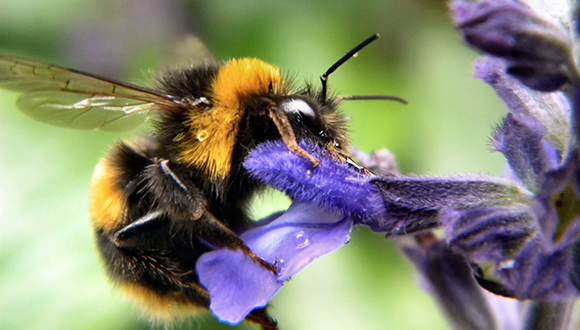Increased ozone levels reduce flowers' sex appeal
New research finds that as climate change increases ozone levels, pollinators will have a harder timing finding plants that feed them. That’s going to be a problem for the bees that pollinate a third of the world’s food supply. Flowers and other plants rely on microscopic scent molecules to attract the bees and other pollinators that feed on them. Climate change is going to disrupt that process, mostly because of ground-level ozone, which is projected to increase over the coming decades. The study, published in the journal New Phytologist, found that flowers’ fragile scent molecules break down more quickly as they are exposed to greater levels of ozone.
>> Read the full article from Takepart.com here








